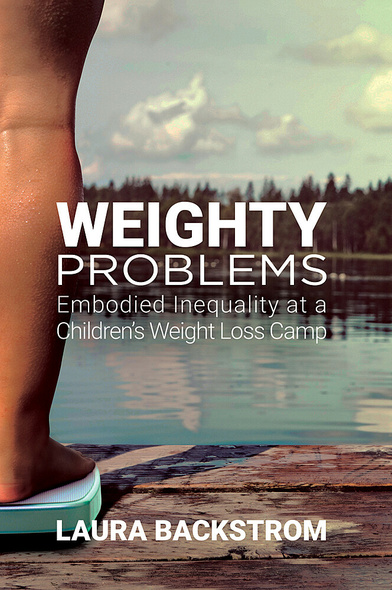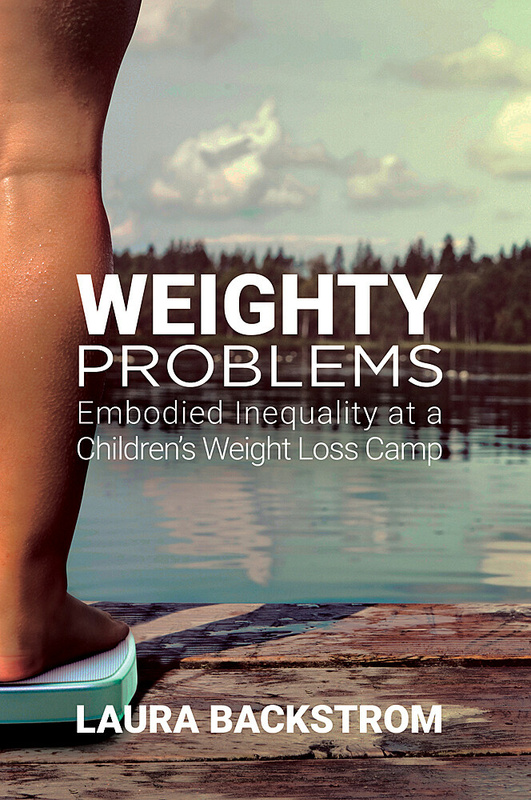Our shopping cart is currently down. To place an order, please contact our distributor, UTP Distribution, directly at utpbooks@utpress.utoronto.ca.
Weighty Problems
Embodied Inequality at a Children's Weight Loss Camp
Rutgers University Press
Many parents, teachers, and doctors believe that childhood obesity is a social problem that needs to be solved. Yet, missing from debates over what caused the rise in childhood obesity and how to fix it are the children themselves. By investigating how contemporary cultural discourses of childhood obesity are experienced by children, Laura Backstrom illustrates how deeply fat stigma is internalized during the early socialization experiences of children. Weighty Problems details processes of embodied inequality: how the children came to recognize inequalities related to their body size, how they explained the causes of those differences, how they responded to micro-level injustices in their lives, and how their participation in a weight loss program impacted their developing self-image. The book finds that embodied inequality is constructed and negotiated through a number of interactional processes including resocialization, stigma management, social comparisons, and attribution.
Weighty Problems is an engaging and well-written exploration of the ways in which current cultural framings of childhood obesity are experienced by children. In focusing on how children navigate the cultural meanings of fatness, Backstrom shows that the internalization of these messages carries over into adulthood.
Fat camps are ostensibly designed to help kids lose weight by a compulsory diet. Like every other diet, it does not work. What the kids take away and keep is that their self-worth depends on their body size and that they do not measure up to societal expectations, learning that they must change themselves rather than celebrate what makes us all different. Weighty Problems is a wake-up call to adults to rethink what we are teaching children. A must-read for those interested in child health and well-being.
Recommended.
LAURA BACKSTROM is an assistant professor of sociology at Florida Atlantic University in Boca Raton.
Contents
1 Embodied Inequality, Childhood Obesity, and the “Problem Child”
2 Studying Camp Odyssey
3 Learning Embodied Inequality through Social Comparisons
4 “It’s Not A Fat Camp:” The Decision to Attend Camp
5 Change Your Body, Change Yourself: Camp Resocialization
6 The Benefits of Weight Loss Camp…and the Dark Side
7 “They Were Born Lucky:” Weight Attribution among the Campers
8 Conclusion
Acknowledgements
Index
1 Embodied Inequality, Childhood Obesity, and the “Problem Child”
2 Studying Camp Odyssey
3 Learning Embodied Inequality through Social Comparisons
4 “It’s Not A Fat Camp:” The Decision to Attend Camp
5 Change Your Body, Change Yourself: Camp Resocialization
6 The Benefits of Weight Loss Camp…and the Dark Side
7 “They Were Born Lucky:” Weight Attribution among the Campers
8 Conclusion
Acknowledgements
Index






